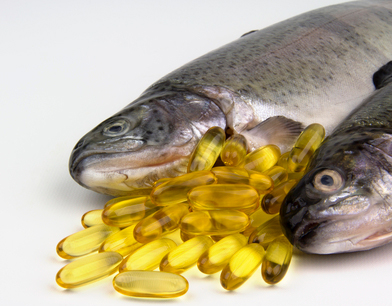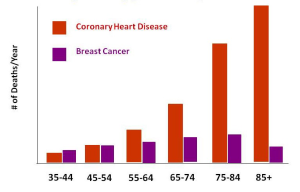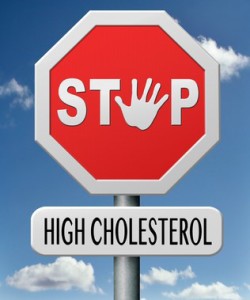Author: Julie Donnelly, LMT
 What causes hip pain? The hip is a complicated joint and has a potential for many causes of hip pain.
What causes hip pain? The hip is a complicated joint and has a potential for many causes of hip pain.
There is an incredible range of motion from the synchronicity of many muscles, all inserting at different points around the hip and pelvis.
Some of the muscles pull your thigh bone in a series of different directions, while other muscles keep your pelvis in alignment.
2 Primary Muscles that can be the Cause of Hip Pain
The iliopsoas and the quadriceps are the two primary muscles that cause hip pain. These muscles rotate the pelvis forward and down, causing all of the muscles that insert into the pelvis to torque and spasm. Ouch!
As the iliopsoas muscle contracts it pulls down on the front side of your lumbar vertebrae causing you to bend over or it pulls up on your thigh bone causing your leg to lift in order to take a step or sit down.
When the muscle contains muscle fiber knots it pulls the thigh and torso toward each other, and when attempting to stand this forces a separation, pulling on the lumbar vertebrae and also on the inside of the hip.
The quadriceps originate on the tip of the anterior pelvis and then insert into the shinbone, just below the knee joint. When the quads are tight they pull hard on the front of your pelvis causing tension in the front of your hip and your knee.
Another Muscle that Causes Hip Pain
The tensor fascia lata,, a muscle on the outside of your hip, can also cause hip pain. This muscle merges into the iliotibial band (ITB) that inserts into the knee.
When the tensor fascia lata is in spasm (contains muscle knots) it not only causes hip pain, but it can also cause the outside of your knee to ache and to feel like it could pop out of joint.
To complicate the problem, while the iliopsoas and quadriceps pull the hip down in the front, tight hamstrings pull the pelvis down in the back. This causes pain in the top back of the leg and at the groin. Plus, as the muscles pull on both sides of the pelvis, this can cause pain that radiates all around the hip.
How to Relieve Hip Pain Naturally
The bottom line is in order to relieve hip pain naturally, you need to first locate the source of the pain.
The best way to find the source what causes hip pain is to pinpoint exactly where you feel the pain and then figure out which muscle inserts at that joint. This is the muscle causing your hip pain!
Treating Hip Pain
Once you know which muscle is causing the pain, treating hip pain is easy!
- Locate the most painful point in the length of the muscle. This normally is the muscle spasm that is causing the pain where the tendon attaches to the bone. When looking at hip pain, the spasm could be above the hip, below the joint or even directly on the joint.
- Maintain deep pressure on the point for 60 seconds. Holding pressure directly on the knot (spasm) in the muscle flushes out toxins and stretches the muscle fibers. When the knot is released toxins are removed which causes a void in the muscle fiber. The body fills this void with nourishing blood and nutrients.
- Stretch. Stretches are most effective after the muscle knots have released their strain on the tendon and bone.
While it is useful to have a therapist release your muscles, it is more beneficial to do regular, even daily, treatments (muscle release techniques) on the muscles that are repetitively used and strained. Maintaining healthy muscle tone rewards you with greater strength and flexibility and eliminates pain; keeping you in the race! The process above explains how to relieve hip pain naturally has proven to be extremely effective.
An Example Of Natural Hip Pain Treatment
 Today I’d like to share with you how to do one of the Julstro self-treatments that we teach on the Julstro Trigger Point Yoga instruction kit. For example, let me explain how to treat the tensor fascia lata muscle which is located on the outside of your hip, between your hip bone and the top of your thigh bone:
Today I’d like to share with you how to do one of the Julstro self-treatments that we teach on the Julstro Trigger Point Yoga instruction kit. For example, let me explain how to treat the tensor fascia lata muscle which is located on the outside of your hip, between your hip bone and the top of your thigh bone:
Using a tennis ball (hollow in the center so it is a bit less intense) or a Perfect Ball (solid in the center so it gets in deeper) place the ball right where the side-seam of your pants is located – between the two bones. If you are in a lot of pain, start by leaning into a wall. If you want to go deeper into the muscle, lie on the floor on top of the ball. You may need to move an inch or so to find the “epicenter” of the spasm, but you’ll know immediately when you locate it. Always make sure you keep your pressure to a “hurts so good” level, you’re in control so don’t over-do.
Once you find the spasm, which is also called a “trigger point,” just stay still on it for 30-60 seconds. Lift your weight off the ball for a few breaths and then press into the ball again. This second time you’ll find that it won’t be as painful as the first time because you have already pressed out some of the H+ ions that are causing the spasm (and the pain).
Keep repeating this for a few minutes and then slightly move your body so you can find other trigger points that are around your hips. You’ll probably find points that are a little bit toward the front of your hip, so make sure you rotate your body so you’re facing more toward the wall or the floor, and then rotate your body so you’re back is more toward the wall or the floor.
This one simple technique has saved several of my clients from thinking they needed hip surgery! It will help you move easier and with less discomfort – and often it will totally eliminate the pain from your hip completely.
These statements have not been evaluated by the Food and Drug Administration. This information is not intended to diagnose, treat, cure or prevent any disease.
About The Author
 Julie Donnelly is a Deep Muscle Massage Therapist with 20 years of experience specializing in the treatment of chronic joint pain and sports injuries. She has worked extensively with elite athletes and patients who have been unsuccessful at finding relief through the more conventional therapies.
Julie Donnelly is a Deep Muscle Massage Therapist with 20 years of experience specializing in the treatment of chronic joint pain and sports injuries. She has worked extensively with elite athletes and patients who have been unsuccessful at finding relief through the more conventional therapies.
She has been widely published, both on – and off – line, in magazines, newsletters, and newspapers around the country. She is also often chosen to speak at national conventions, medical schools, and health facilities nationwide.
Check It Out!
If you would like easy to follow instructions on how to relieve joint pain and muscle tightness from head to toe, click Full Point Yoga Full Body Kit to check out Julie Donnelly’s Trigger Point Yoga instruction kit today. Whenever, I have pain and stiffness I use her techniques. They work!
What Did You Think?
Let us know your thoughts on today’s issue
Post your comments here
Remember – sharing is caring

























